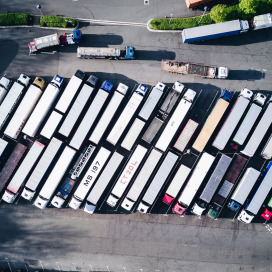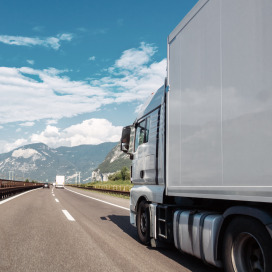Applications
Heavy-goods vehicles
Globally, the transport sector is one of the biggest CO₂ polluters, and road transport is the biggest contributor, with 72% of the total. On European roads, freight transport accounts for over a quarter of vehicle emissions - there is immense CO₂ savings potential here.

Different concepts
Alternative concepts to reduce CO₂ emissions are already in use for personal transportation. For heavy-goods traffic, these solutions often fall short. Battery power is rarely an alternative due to the transport loads and the distances involved. In the case of hydrogen, the challenges lie in transport and storage, economic efficiency and unresolved safety issues. Liquid natural gas or LNG (Liquefied Natural Gas) does not achieve the desired CO₂ savings effects.
e-fuels offer impressive solutions with the following key benefits.

e-methanol in the fuel cell or combustion engine
- Production launch of the first large-scale plants are already being planned
- e-methanol is the simplest and most cost-effective e-fuel
- Methanol fuel cell is close to market readiness
- Engine technology for methanol propulsion is available
- Existing transport and storage solutions can be used
e-diesel in the combustion engine
- Can be used in existing fleets
- Can be blended with conventional diesel in any ratio
- No investments in alternative propulsion concepts are needed
- Existing transport and storage solutions can be used